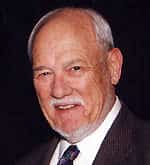 By ANDY ANDEWS
By ANDY ANDEWS
Los Alamos World Futures Institute
In the previous columns of this series a bubble model was introduced with individual models bouncing around in a fluid of information and knowledge.
Bubbles can unite with other bubbles to form bigger bubbles such as families, companies, government entities, and other groups of bubbles and even countries. In so doing, the individual bubbles and amalgams must communicate with other bubbles, adapt and contribute.
The rules for interaction, which defines how the bubbles all get along or not, defines the culture of a bubble, whatever its size. Concurrently, individual bubbles must acquire the skills to sustain themselves within the culture. This is accomplished through learning: formal, informal and nonformal.
According to Wikipedia, culture “is the social behavior and norms found in human societies” (bubbles). While a culture has universal aspects such as technologies, tool usage, food, shelter, and clothing, it also includes expressive forms such as art, music, dance, literature and religion. Additionally, there is social organization that includes politics, philosophy, manners and social institutions. To use a common (currently cultural) term, it’s complicated.
Imagine a giant bubble of 330,000,000 individual bubbles and an undefined number of larger bubbles (you may recognize it). A new individual bubble enters the giant bubble and must age, grow and adapt to the culture (which is evolving). How does this happen and how is it achieved? What if the giant bubble headquarters has a secret office that meticulously identifies the path and control for each new bubble? It begins to sound like Brave New World or Animal Farm. How do you control 330,000,000 bubbles? The simple answer is that it cannot be done, at least not with precision. Yet all of the individual bubbles must follow the rules (which may include laws) of the culture and, at some point, begin contributing to sustaining society.
As soon as the new bubble exists, it begins to learn. It has to learn for survival, which in turn includes adaptation to the culture. The key word is learning, a process for growing or modifying behaviors, skills, values, preferences and knowledge (or should I say thinking). And it is a lifelong process between the individual bubble and the environment (both physical and cultural).
Repeating, learning is usually accomplished formally, informally and nonformally.
Formal learning is usually accomplished through an institution such as a school or by another organization such as a business or other organization involving a teacher-student relationship. There are also informal and nonformal learning. Informal learning occurs during the experience of everyday life while nonformal learning occurs in an organized fashion outside of the formal learning environment.
Education and training usually fall within the formal learning domain but some training could be informal or nonformal. Restricting the discussion, for now, to education, what is its role? Is education intended to teach culture or training the mind how to think? Is it about memorizing facts or the ability to make sound judgments. Or is it a progressive system designed to teach, as a minimum, the skill set essential to being a productive bubble in a bubble society, at the same time enabling those with demonstrated potential the opportunity to become a contributor to the culture?
When a new bubble enters the macro bubble of society, it is already constrained by the circumstances of its immediate environment, But it is (should) not constrained by the culture. It should be free to pursue its ultimate potential and should be aided by an education system that facilitates the assimilation of the culture. At the simplest level, this includes reading, writing, and arithmetic. As used here, reading implies the receipt of communication, writing implies the sending of communication, and arithmetic implies skills for some level of thinking. To me, all bubbles must able to communicate and reason within the structure of the culture. Without communication, one cannot access knowledge present in the environmental fluid and, without reasoning, one cannot sort the good, the bad and the ugly of knowledge and take correct actions within the culture.
Beyond being just a productive bubble, contribution to the culture, and how it aligns with the education system needs to be considered.
The Los Alamos World Futures Institute website is LAWorldFutures.org. Feedback, volunteers and donations (501.c.3) are welcome. Email andy.andrews@laworldfutres.org or bob.nolen@laworldfutures.org. Previously published columns can be found at www.ladailypost.com or www.laworldfutures.org.

